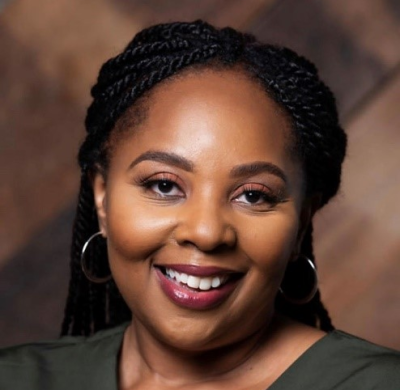on
by Alan Hughes
When Terri-Nichelle Bradley sought out much-needed capital for her business, she had everything in order – ties to a respected business incubator, excellent credit, and an $800,000 purchase order from a major retailer. Even so, the Atlanta resident was denied some 50 times before her company received its first investment capital.
Bradley, CEO of Atlanta-based Brown Toy Box, an educational toy company producing and curating STEAM (Science, Technology, Engineering, Arts, and Math) toys, media, and experiences, turned to her professional network and the relationships she curated over the years. But it wasn’t easy. “It was a very stressful, traumatic time, going through the whole funding process with VCs and non-traditional funders,” she recalls. “I had a series of panic attacks because of this process.”
Unfortunately, such challenges are common and longstanding for Black entrepreneurs, who receive less than 2% of capital invested into U.S. startups, according to Crunchbase, a private and public business information provider. While there has been a rise in the number of Black venture capitalists over recent years, there does not appear to be a commensurate increase in institutional capital – which hails from banks, credit unions, government-linked companies, insurers, pension funds, sovereign wealth funds, charities, and mutual funds.
Entrepreneurship is key to narrowing the wealth gap meaningfully. Business ownership has created more Black millionaires and billionaires than career advancement, stock market investing and homeownership. And these enterprises need venture capital to scale. Black venture capital firms are more likely to invest in Black-owned businesses but typically receive smaller capital allocations from institutional investors from which to fund business ventures.
Institutional capital collectively invests only 1.4% of its assets with the diverse-owned investment firms. Endowment funds – investable assets from entities that include non-profits, universities, and cultural institutions – fare somewhat better. The Knight Foundation reported that endowments managed by diverse-owned firms slightly increased from 16.6% to 18.1% over a two-year period.
For there to be substantial growth in Black investors, corporations, foundations, endowments, and ultra-high net worth individuals would have to increase their investment with diverse-owned asset management firms, according to Robert L. Greene, President & CEO of the National Association of Investment Companies (NAIC). “Public pension plans can’t and probably shouldn’t be the dominant source of capital for venture capital firms because they’re looking for steady returns and the other is looking for, in many cases, outsized or home-run returns,” he explains. NAIC is a trade association representing more than 185 diverse-owned investment firms.
Greene points out that the same corporations and their investment consultants that have invested heavily in emerging markets overseas are reluctant to do so with investment firms that would put the money to work within diverse communities stateside. “The excuses that are often made are that they can’t find them, they don’t meet their needs, they don’t fit,” says Greene. “Yet we watch corporations
and institutional investors deploy capital on a global basis in the most far-flung and obscure places imaginable. I call that going down Bias Street without actually parking there.”
With the U.S. economy heading into rough waters, 2023 may be a challenging year for venture capitalists and entrepreneurs seeking investments alike. Third-quarter VC activity was below the historic heights of 2021 and early 2022, according to the PitchBook/National Venture Capital Association Venture Monitor. The quarterly report also identified points of stress appearing in the markets, recording the third consecutive decline in completed deals.
The lack of capital flowing to Black businesses has impacted the ability to build wealth for generations. “Our businesses are surviving, but it [owners] have emptied their pension funds, their IRA and savings accounts, and leveraged their homes. And all those actions undermine our ability to build wealth,” says Melissa Bradley, Managing Partner at Washington, D.C.-based 1863 Ventures. A Black-led national business development non-profit accelerator and venture capital fund, 1863 Ventures focuses on Black, Latinx, and other historically excluded entrepreneurs.
Despite economic conditions, Marlon Nichols, Managing General Partner of MaC Venture Capital, says he plans to continue investing into the new year, focusing on business-to-business companies. “I think most of where we’ll deploy are companies with a B2B approach and companies that are providing services and products that we see as a must-have instead of a nice to have,” he says. “Those are the companies that are probably going to continue to excel in these kinds of environments.” Mac Venture is a Black-owned seed-stage venture capital firm focused on technology and media businesses.
Boris Moyston, Founder & Senior Managing Partner of Relentless Venture Partners, a VC fund investing in early-stage tech startups founded by Black and Latin American innovators, is placing capital with entrepreneurs he considers innovators. “In times of uncertainty, we’re looking for companies that are going to come and do something differently, particularly in a time where things are tough,” he says. “Because there’s all this innovation for how we’re going to be living life going forward and how we’re going to be working with each other.”
For endowments to foster real change, decision-makers must first understand the value diverse-led venture capital firms bring to the table. It also requires understanding the firms’ investment strategies and due diligence to reach the conviction required to deploy capital. “Too often, there’s lip service, or there’s some perfunctory stage and steps of evaluating, talking, and meeting,” points out the NAIC’s Greene. “But some efforts have not been met with the best intention of truly deploying capital.”
Join our email list to stay connected.






